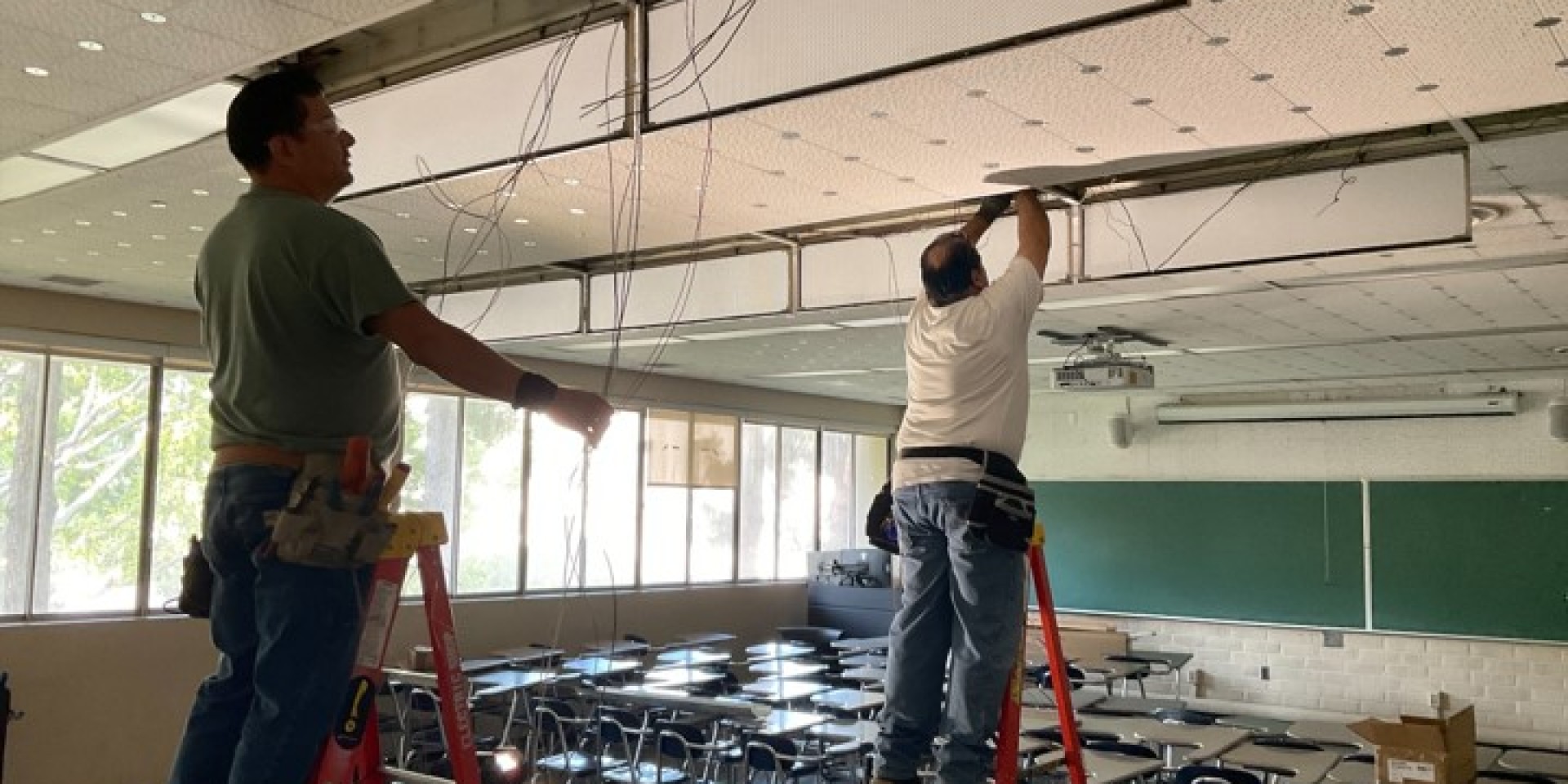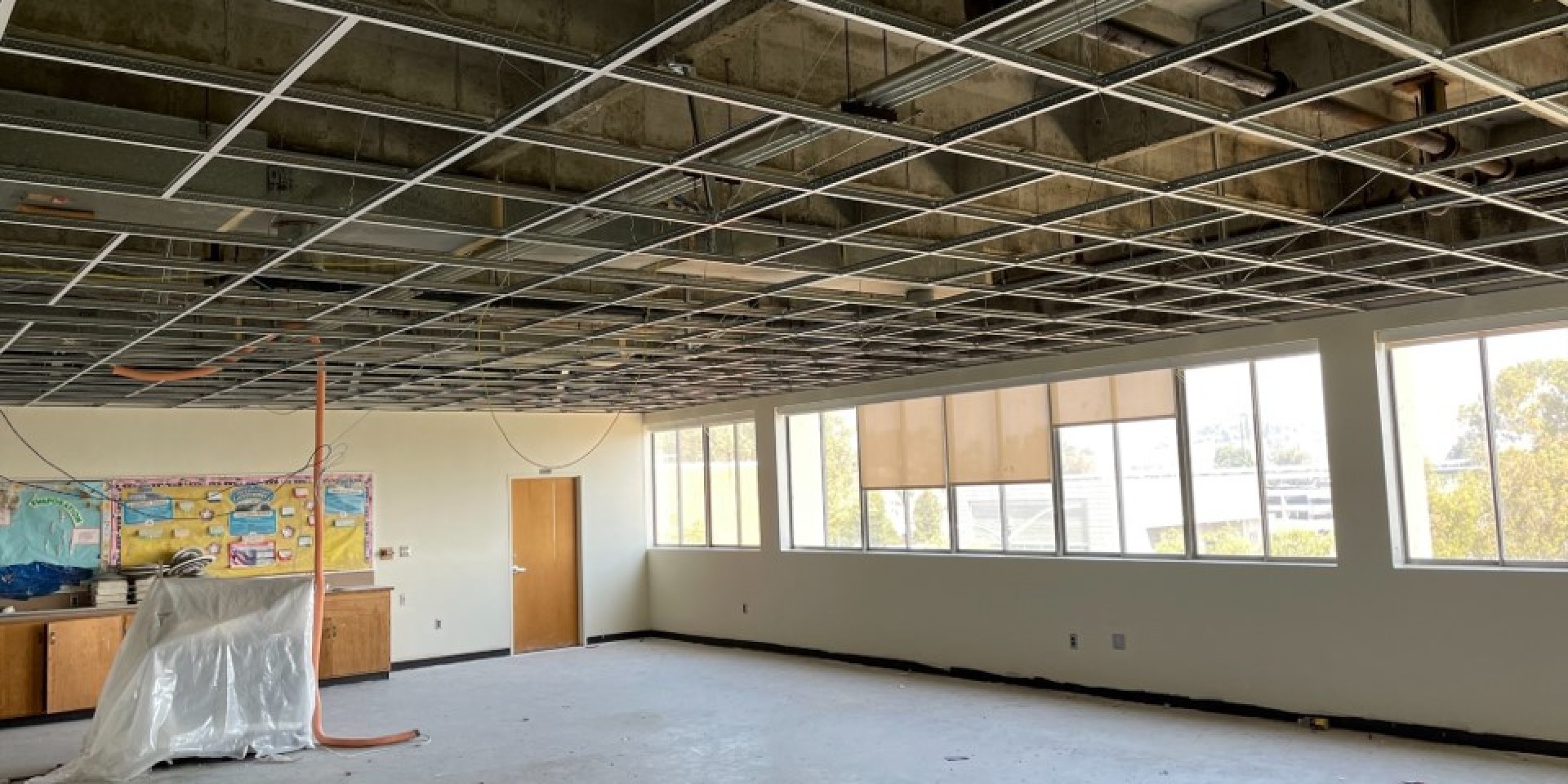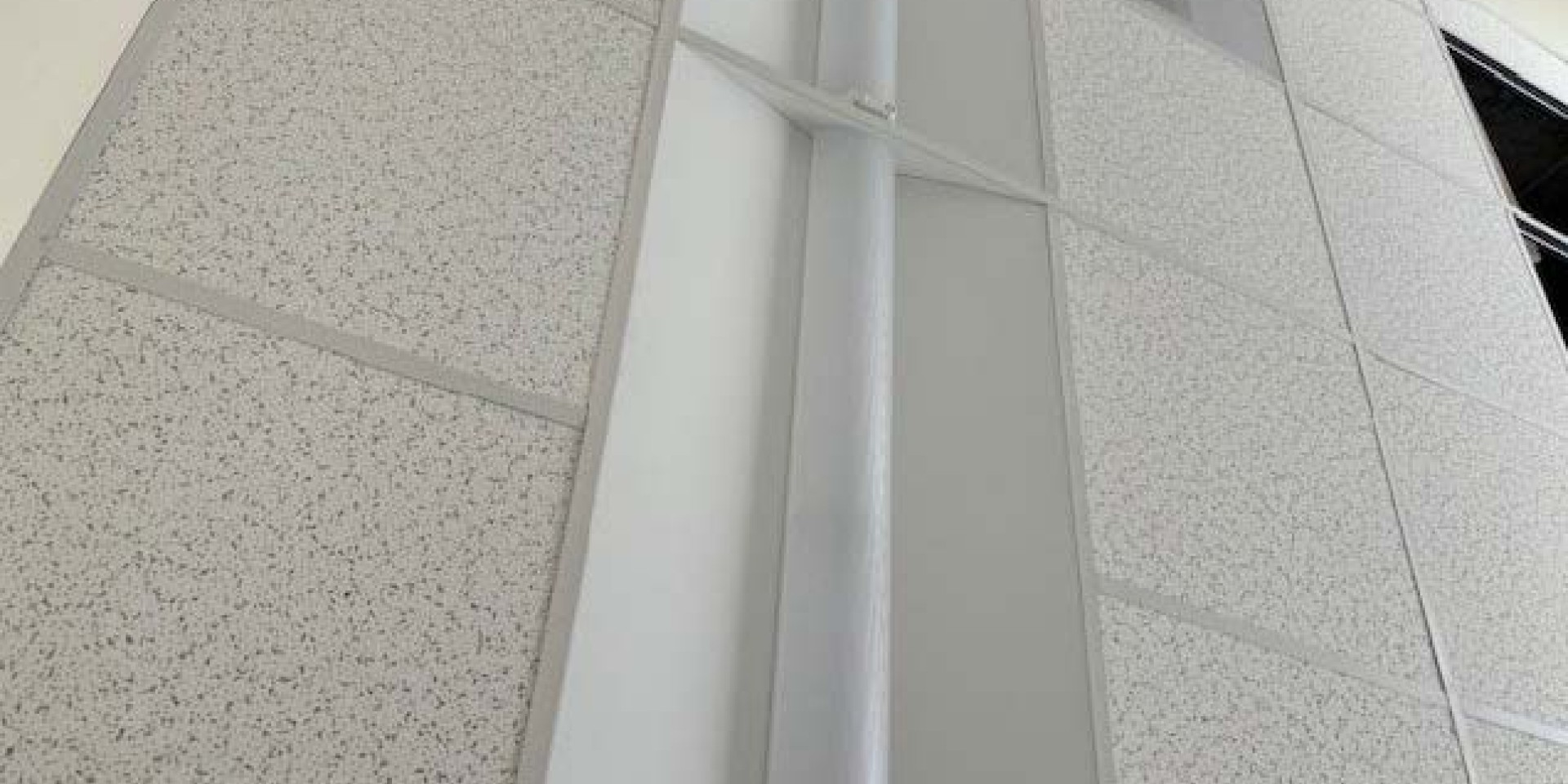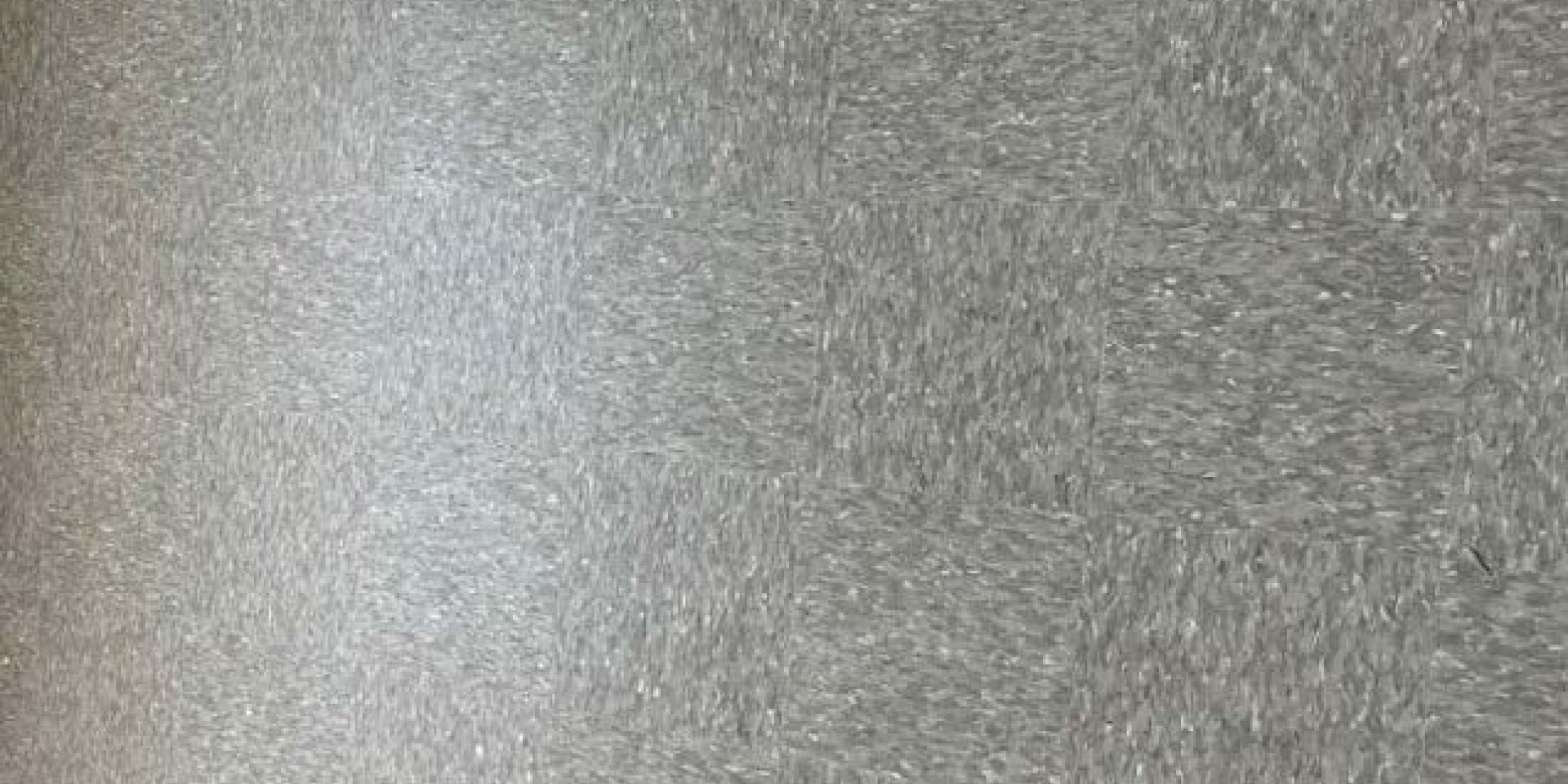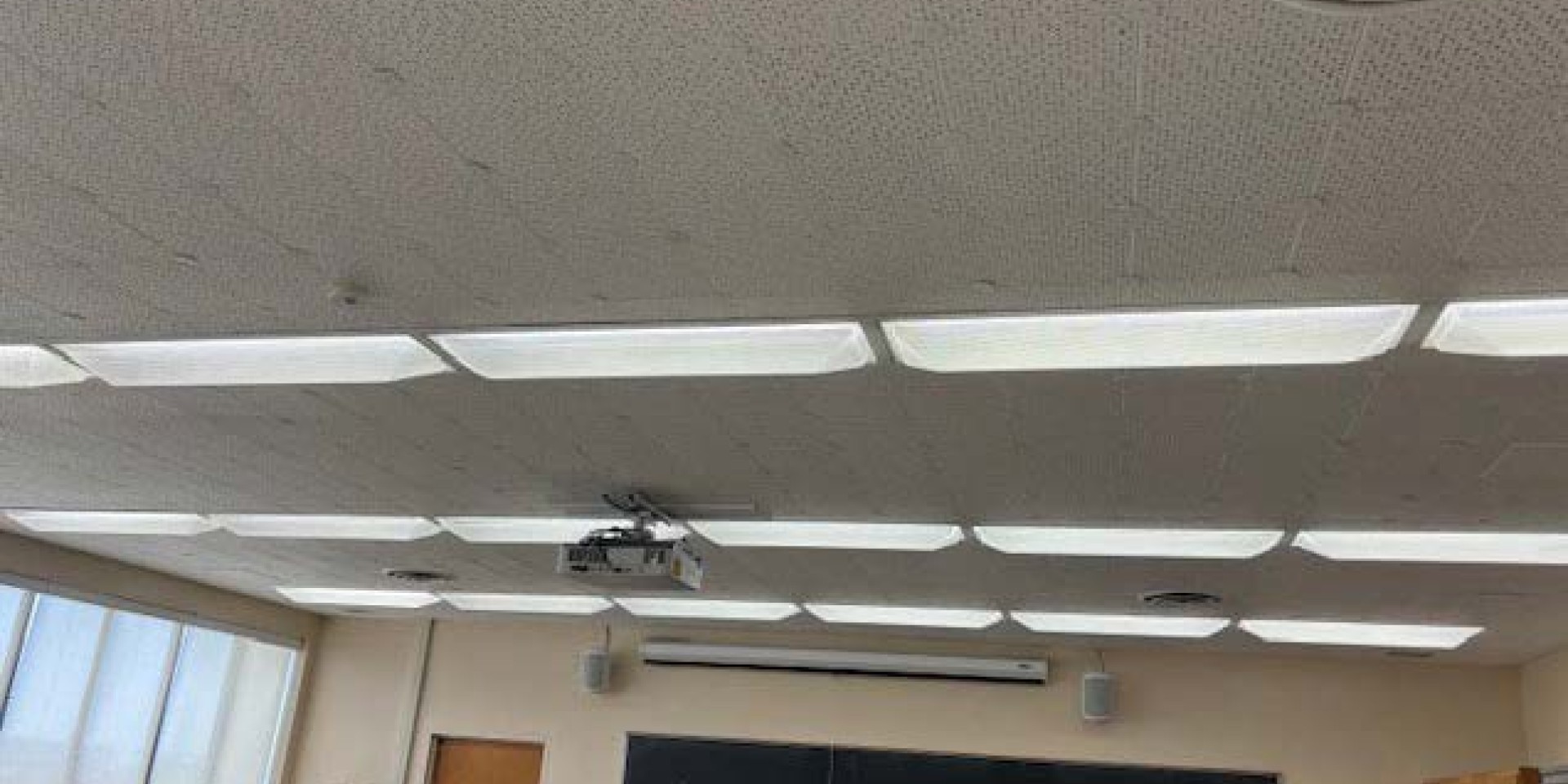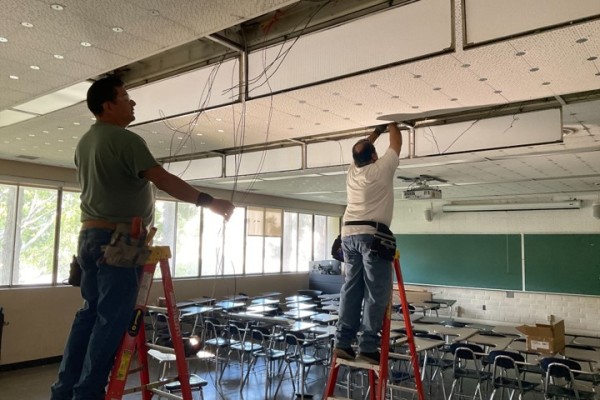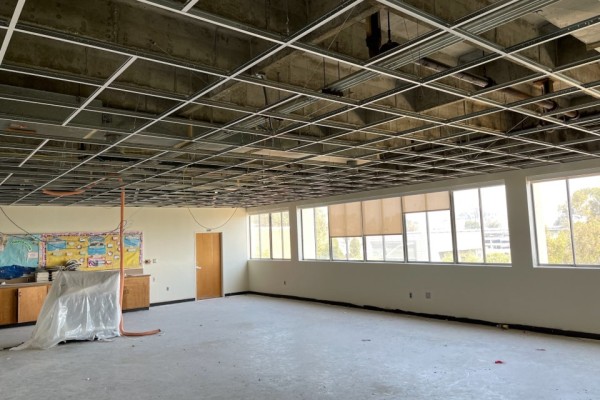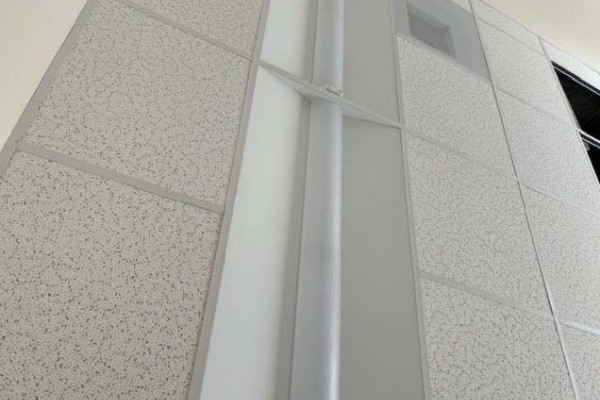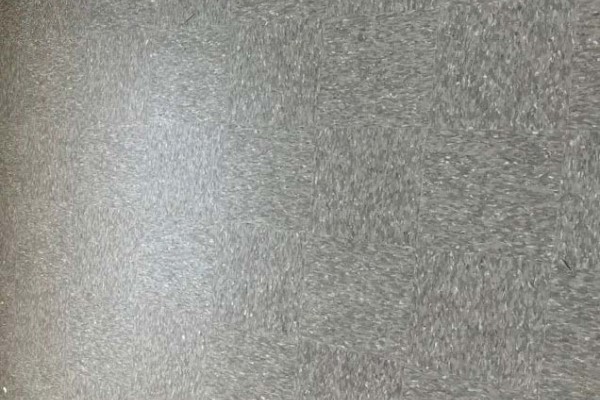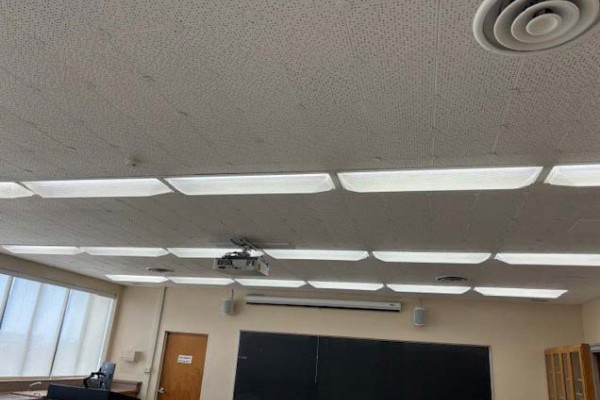Update: December 20th, 2024
Effective January 1, 2025, Risk Management, Environmental, Health, & Safety (RMEHS) will no longer operate from the temporary satellite office located in King Hall. If you have any questions or concerns, please submit them through the Report a Concern link or contact RMEHS directly at (323) 343-3531.
Update: October 8th, 2024
Dear Faculty and Staff,
Please let me first say thank you to everyone who helped facilitate the move back into King Hall. Visiting the building this semester, I was thrilled to see the life and energy of student engagement in the halls – along with the vibrancy of research and learning.
President Eanes communicated previously a report of air testing in King Hall, confirming that California Occupational Safety and Health Administration (Cal-OSHA) and federal OSHA standards for air quality related to asbestos are met.
Out of an abundance of caution, and to address any lingering concerns, we hired the same third-party firm that conducted air tests to examine surfaces in five offices that had been affected by water damage and gave those results along with the air quality results to another third-party evaluator. This two-step removal is intended to isolate any bias that may be in the evaluation.
I have attached the analysis from the third-party evaluator here, so you can read the full details. The report indicated the following:
- Asbestos is regulated by Cal-OSHA/OSHA based on airborne fiber limits. The testing showed these levels are acceptable for staff, students, and the public to occupy the areas tested throughout King Hall.
- While there are no regulated limits for asbestos in surface dust, there are some widely accepted industry guidance: 1,000 s/cm2 – “low” concentration; 10,000 s/cm2= “Above background” concentration, “and 100,000 s/cm2= “High” concentration. The sample results in King Hall were in all but one below the Level of Detection (1,000 s/cm2), and in all cases were below 5,000 s/cm2 (the strict standard used for homes and residential buildings).
We are in a place that by measurable Cal-OSHA/OSHA, industry, and residential standards related to asbestos, King Hall is safe. Yet, I also know that the concern around asbestos has been deeply felt and is troubling for the community, and that the appropriate action is to go above and beyond what is required.
I have therefore instructed the following:
- We will conduct a professional cleaning of the interior surfaces and room contents of specific King Hall rooms affected by water damage. I will repeat that this is not a required action based on levels at or below those found ambiently in California, but it is an action we are taking nonetheless for the sake of peace of mind.
- We will provide for ongoing, random ambient air testing for King Hall to ensure that air quality continues to meet Cal-OSHA/OSHA standards.
- Additionally, we concur with the expert evaluator’s recommendation related to the largely abandoned old Administration Building. Given the building has some limited function, we will provide for ongoing ambient air testing for the safety of those who have occasional responsibilities in that space.
Again, I acknowledge the difficult journey this has been for the Cal State LA community. Though I was not here at the beginning of this discussion related to King Hall, it is my responsibility now to see that we are addressing needed deferred maintenance in an open and honest way.
Cal State LA has facilities that are reaching the end of their useful life, such as the old Administration Building, and others in serious need of repair – hence the heavy workload over the summer. Going forward, we need a plan of action on all our facilities, and I will be in communication regarding a framework for engagement in developing those plans.
Sincerely,
Claudio Lindow
Interim Vice President and Chief Financial Officer
Administration and Finance
Update: August 21st, 2024
A message from President Berenecea Johnson Eanes
Dear Golden Eagle community,
Let me begin by thanking you all for your patience. I acknowledge voiced concerns that the damage to the Student Services Building took away from King Hall restoration. I can assure you we never let up on the King Hall efforts. On July 19, I sent an email with an update on progress related to King Hall. That email included the status of project completion and move-in dates.
Today, I am glad to confirm that independent testing by Terra Environmental, under the direction of a Cal/OSHA-Certified Asbestos Consultant, has confirmed that King Hall passed Asbestos Ambient Air Sampling tests conducted in hallways and rooms throughout the building. This means, King Hall meets or exceeds the standards for occupancy set by the Environmental Protection Agency.
That testing report is attached for the purpose of full disclosure. The previous testing results are also available on the website. Please note that the area of concern in that earlier report was the roof, which is why we prioritized its replacement. This recent testing confirms the success of that work over the summer. King Hall-Asbestos Ambient Air Sampling Report
During roof work, the material was wetted down to prevent dust from becoming airborne for the safety of all on campus. All air vents and duct work were covered to prevent any spread of materials from the roof. Additionally, due to plaster ceilings being removed in the “C Wing” section of the building, a specialized contractor completed a deep clean of all spaces in that wing.
While we prioritized many immediate needs for health and safety, work on King Hall will continue for general and deferred maintenance. I communicated some of those steps in my July 19 message, and we will update through the semester.
I appreciate all who leaned in on this and our other major projects throughout the summer. King Hall is a building with a proud history (your history) and years left to expand on that legacy.
I will remain in contact with Interim VP Lindow and his team on bringing the King Hall restoration to a successful conclusion.
Sincerely,
Berenecea Johnson Eanes, Ph.D.
President
Update: October, 15th 2024
Facilities Services and Risk Management satellite office hours of operation starting Monday, October 21st, 2024
Location: KH D1053
| Satellite Office | Monday | Tuesday | Wednesday | Thursday | Friday |
| Hours of Operation | 1pm-4:30pm | 8:30am-12pm | 8:30am-12pm | 1pm-4:30pm | Closed |
Update: August 14th, 2024
Phases 1 and 2 have been completed and faculty/staff can return on Monday, August 19, 2024. Movers have begun to return office furniture to third floor King Hall, Wing A and will finish on Saturday, August 17, 2024. Movers will begin to move boxes for C Wing Department staff who were temporarily relocated to Library Palmer Wing on Friday, August 16, 2024.
Phases 1 and 2 have been completed and faculty/staff can return on Monday, August 19, 2024. Movers have begun to return office furniture to third floor King Hall, Wing A and will finish on Saturday, August 17, 2024. Movers will begin to move boxes for C Wing Department staff who were temporarily relocated to Library Palmer Wing on Friday, August 16, 2024.
Update: July 3, 2024
Starting Wednesday, July 3, 2024, the Facilities Services and Risk Management satellite office will have updated summer hours. The office will be open on Tuesdays from 9:00 a.m. to 12:00 p.m., Wednesdays from 10:00 a.m. to 2:00 p.m., and Thursdays from 2:00 p.m. to 4:00 p.m. It will be closed on Mondays and Fridays.
Update: June 9, 2024
Beginning Monday, June 10, 2024, the Facilities Services and Risk Management satellite office will have new summer hours. It will be open on Tuesdays from 9:00 a.m. to 12:00 p.m. and on Thursdays from 2:00 p.m. to 4:00 p.m. The office will be closed on Mondays, Wednesdays, and Fridays.
In April 2024, a King Hall Action Team was created to address the campus community concerns raised at the March Town Hall. The King Hall Action Team conducted a walk-through assessment of the entire building, including offices, classrooms, hallways, and restrooms, beginning in April and concluding in mid-May.
Facilities Services will commence repair work this summer to address immediate concerns identified during the walk-through assessment. The repairs include the installation of a new roof for the A and C wings and a phased modernization of ceilings, flooring, finishes, and lighting throughout King Hall.
*Update: April 29th, 2024
Dear Department Chairs, Faculty, and Staff,
King Hall Wings A and C will be closed for roof replacement in the Summer of 2024. Department Chairs and staff housed in Wing C will be temporarily relocated to alternative locations during this time. Temporary office location assignments will be available to occupy on Wednesday, May 22, 2024. Keys have been ordered and faculty and staff will be notified when they can pick up their keys from Public Safety.
Some offices in King Hall Wings B and D will have work completed based on repair and maintenance needs identified by King Hall Action committee. Faculty and staff housed in Wings B and D are not expected to move this summer while work is being done. Facilities will complete this work off-hours and you will be notified prior to what work will be completed and the start and anticipated end date.
Department chairs and staff in Wing C will receive boxes the week of April 29 to pack items only needed for work this summer. On May 20, 2024, College ITCs will move computers and monitors. On May 21, 2024, movers will take the few boxes with essential summer items to their temporary locations.
No one will be permitted to enter department or faculty office spaces in the C Wing while repairs are taking place. The roof repair work is scheduled to be completed before the Fall term begins.
Associate Deans are responsible for identifying alternative office locations for faculty teaching summer classes or conducting research who are housed in C wing. Faculty housed in C Wing will not be expected to pack or move any items.
Once the roof project is completed, Facilities will conduct a walk-through of spaces for cleanliness and safety before faculty/staff re-entry.
The King Hall website will be updated with more detailed information, timelines, and other work happening this summer, along with a FAQ sheet addressing concerns raised by faculty and staff.
Those affected in KH Wing A will receive a separate email about the scope of work to be completed this summer.
If you have any questions, Facilities Services and Risk Management have established a satellite office for questions regarding King Hall in King Hall D1053 for the next three to six months. The office hours are 8:30 a.m. to 7 p.m. (Monday, Tuesday, and Thursday) and 8:30 a.m. to 4:30 p.m. (Wednesday and Friday).
KH Wing A repairs details
Dear Faculty, Associate Deans and Deans,
This summer, the third-floor A wing of King Hall will undergo a facelift. All 27 faculty offices, including the hallway, will have new ceilings, vinyl flooring, light installation, and be painted. To that end, a moving company has been hired to pack all offices for storage in a secure location on campus while the work is taking place. Once the project is complete, movers will return items to the office and unpack them.
Boxes will be available the week of April 29 for faculty who prefer movers to refrain from packing personal items. Please notify your Associate Dean on or before May 6, 2024, if you prefer to pack your personal items. It is recommended that all personal items be taken home. Any personal items left in the office will be boxed up and stored with the remainder of your office furniture. College ITCs will disassemble computers, monitors, and printers, and movers will move all items on May 21, 2024.
The King Hall website will be updated with more detailed information, timelines, and other work happening this summer, along with a FAQ sheet addressing concerns raised by faculty and staff.
If you have any questions, Facilities Services and Risk Management have established a satellite office for questions regarding King Hall in King Hall D1053 for the next three to six months. The office hours are 8:30 a.m. to 7 p.m. (Monday, Tuesday, and Thursday) and 8:30 a.m. to 4:30 p.m. (Wednesday and Friday)
*Update: April 4th, 2024
Facilities and Risk Management will establish a satellite office in KH D1053 for the next three to six months. The satellite office will be staffed by an administrative assistant to intake/process work orders. The office will be open Monday through Friday at 8:30 am. Monday, Tuesday, and Thursday, the office will close at 7:00 pm, and Wednesday and Friday, the office will close at 4:30 pm.
Beginning Monday, April 8, 2024, the King Hall action team will begin to perform an extensive inventory of the repairs and maintenance needs of King Hall. The team will document their results, including photos to begin a repair and maintenance plan to address concerns voiced by faculty and staff. Since KH houses several colleges, resource managers will be asked to participate when walking through faculty and department offices.
Lastly, the A and C wings of King Hall will be offline for roof replacement and repairs this summer, but the B and D wings will remain open for business.
In the spirit of transparency and open communication, all updates will be shared on the King Hall website, as will all future updates. We want to assure you that we are taking all measures to ensure safety and adherence to local, state and federal regulations.
Asbestos, a naturally occurring mineral, is commonly found in various building materials and components, particularly in heating insulation, soundproofing, and fire protection applications.
The University actively monitors construction and renovation activities to ensure asbestos-free materials are used in new construction and repairs. If asbestos is detected in existing structures, it is abated by certified contractors before any construction work proceeds. Faculty and staff are instructed not to initiate work that may disturb building infrastructure without coordination with Facilities Services or Planning & Construction. An annual memorandum reminds departments of asbestos risks (2024 Asbestos Notification Memo), and a list of buildings with potentially suspect asbestos-containing materials (ACM) is provided for reference.
The University maintains an Asbestos Management Administrative Procedure (AP 419), ensuring that asbestos abatement is conducted by qualified contractors and monitored independently. For inquiries, contact the Risk Management and Environmental Health and Safety (RMEHS) Office at ext. 3-3537 or by email.
The information on this website is current and will continue to be updated as needed.
Q: What is asbestos?
A: Asbestos is a term for a group of naturally occurring minerals mined primarily in South Africa, Canada, Kazakhstan, and Russia. These minerals can form fibrous crystals and separate into flexible fibers when crushed. Asbestos is known for its strength and resistance to fire, heat, electrical, and sound insulation.
Q: What are the common types of asbestos?
A: The most common types of asbestos include Chrysotile (white asbestos), Amosite (brown asbestos), and Crocidolite (blue asbestos). Chrysotile makes up about 90% of the asbestos used in the United States. Amosite was commonly used in heat insulation, and Crocidolite was sometimes found with Amosite or Chrysotile in pipe or boiler wraps.
Q: When does asbestos become a problem?
A: Asbestos becomes a problem or dangerous when it is disturbed, broken, deteriorated, sanded, etc., and fibers get into the air. Generally, asbestos is not a health hazard when it is intact or undisturbed.
Q: Can asbestos exposure occur from natural sources?
A: Yes, natural deposits of asbestos can release fibers into the air, especially in areas where the earth is disturbed. However, the majority of asbestos exposure risks come from anthropogenic sources, such as the deterioration or disturbance of asbestos-containing materials in buildings and infrastructure.
Q: What measures can individuals take to protect themselves from asbestos exposure?
A: Individuals should avoid disturbing materials that may contain asbestos. If asbestos-containing materials are suspected in a home or workplace, it's important to have them assessed by a certified professional. During renovation or demolition work, ensure compliance with safety and regulatory guidelines to prevent fiber release. Awareness and education on asbestos are crucial for prevention.
Q: How does asbestos affect your health?
A: Asbestos can cause serious health issues when its fibers are inhaled in significant quantity. These include asbestosis, a condition where fibers accumulate in the lungs, causing inflammation and scarring, lung cancer, mesothelioma (a type of cancer affecting the lining of the lungs), and other cancers. The severity of these diseases is often related to the dose and duration of exposure.
Q: What are the exposure limits for asbestos?
A: Employee exposure to asbestos must not exceed 0.1 fibers/cm³ of air, averaged over an 8-hour work shift. Short-term exposure must also be limited to not more than 1 fiber/cm³ over 30 minutes to minimize health risks, as referenced in §1529. Asbestos, Appendix H
Q: What precautions should be taken if asbestos is found in a building?
A: If asbestos is found, it's crucial not to disturb the material. Only certified professionals should handle asbestos removal or abatement to prevent fiber release into the air. For non-friable materials (those that cannot be crumbled by hand pressure), such as floor tiles, management in place may be an option, while friable materials (those that can be easily crumbled) require removal under strict safety protocols.
Q: How is asbestos removed safely from buildings?
A: Safe asbestos removal involves several steps, including sealing off the area (containment), using wet methods to prevent dust, and HEPA filtration to capture airborne fibers. All removal work must be performed by certified contractors who follow local, state, and federal regulations, including pre-notification to regulatory bodies like the SCAQMD, as seen in the King Hall case.
Q: What happened at King Hall that was related to asbestos?
A: Intense storms in early 2024 caused rain to leak into Rooms A4026, A4027, & A4028 of King Hall, causing water damage that required occupant relocation and premises restoration. Testing revealed 9" X 9" gray floor tiles contain 2% chrysotile, a type of asbestos. The ceiling tiles were found to have no asbestos. A certified contractor was engaged for abatement, ensuring no airborne asbestos fibers were generated and no human exposures occurred.
Q: Are there regulations for managing asbestos in buildings?
A: Yes, there are regulations at the federal, state, and local levels for managing asbestos in buildings. These include the requirement for inspections before renovations or demolitions, the use of certified professionals for removal, and specific disposal procedures. For example, the SCAQMD Rule 1403 requirements for notification and procedures for asbestos disturbance in Southern California.
Q: What should I do if I see damaged building materials like ceiling tiles or insulation containing asbestos?
A: If you notice damaged building materials, do not disturb them. Report your observation immediately through the form available at Report a Safety Concern. A visual inspection will be conducted as a preliminary measure, followed by testing if issues or concerns are found.
Q: I noticed brown staining and potential water damage in King Hall. Could this be related to asbestos?
A: In most cases no, a brown stain is not a sign of asbestos. Water damage can disturb asbestos-containing materials that create the possibility for exposure. Please report any signs of leaks, staining, or damage through the campus's safety concern reporting system. The area will be assessed, surveyed, and tested. If a potential for asbestos exposure is detected, appropriate measures will be taken.
Q: Have other buildings on campus been checked for asbestos?
A: Yes, the campus conducts regular surveys and inspections to identify and manage asbestos-containing materials in campus buildings.
Q: What are the procedures for asbestos assessment and monitoring on campus?
A: The campus procedure includes asbestos inspections, including visual inspections, bulk sampling, and air monitoring, as needed.
Q: What precautions are being taken being taken to mitigate asbestos risk?
A: The university takes all asbestos-related concerns seriously and has measures to assess and mitigate risks. These efforts include conducting a visual assessment, surveying the area, air quality monitoring, and proceeding with an abatement plan when necessary.
Q: How is the university addressing the issue of loose and falling ceiling tiles in King Hall?
A: We have no tests indicating the presence of asbestos in the ceiling tiles or the glue used on them in King Hall. However, maintenance teams prioritize repairing and replacing damaged ceiling tiles. If you notice loose or falling tiles, especially in areas where you work or frequently pass, report these immediately for action. You may send an email to Report a Safety Concern and upload a photo of the area of concern or place a work order with Facilities through iService https://www.calstatela.edu/facility/iservicedesk or click on the iService application on mycalstatela.edu.
Q: Is there asbestos in the ceiling tiles?
A: Tests that have been conducted before demolition, restoration, or renovation work in King Hall, in compliance with AQMD Rule 1403, have shown no asbestos in the ceiling tiles or glue.
The information here represents testing samples of King Hall from 2018-2024.
| REPORT # | DATE OF SURVEY | LOCATION | EXACT ROOM LOCATION | RESULTS | TEST PERFORMED BY |
|---|---|---|---|---|---|
| 1 | 3/1/2018 | King Hall Hallway | King Hall Hallway Ceiling | None detected; No abatement | Terra Environmental |
| 2 | 3/20/2018 | Rooms 171A & 172 | Room 171A & 175 Center, North, East, South | Abated | Terra Environmental |
| 3 | 4/5/2018 | Boiler Room | Boiler Room, Pipe Insulation (TSI) | Abated | Terra Environmental |
| 4 | 4/13/2018 | Boiler Room | Boiler Room (Abatement Invoice) | Refer to #3 | Quality Environmental, Inc. |
| 5 | 4/18/2018 | Elevator Lobby | Wall Behind Wood Paneling | None detected; No abatement | Terra Environmental |
| 6 | 5/25/2018 | Room 1072-F | Room 1072 - F East Wall | Abated | Terra Environmental |
| 7 | 6/5/2018 | Room 1072-F | 1072-F (Abatement Invoice) | Refer to #6 | Quality Environmental, Inc. |
| 8 | 6/20/2018 | Rooms 1054C & 1054D | Inside work area W, NW, N, NE, E | Abated | Terra Environmental |
| 9 | 6/20/2018 | Room 2092A | Inside work area, S, SE, E, NE, N | Abated | Terra Environmental |
| 10 | 6/25/2018 | Room 4044 | Inside work area SW, W, N, NE, E | Abated | Terra Environmental |
| 11 | 6/29/2018 | King Hall | Removal and disposal of ACM floor tiles | Refer # 13 | South Coast Air Quality Management District |
| 12 | 7/6/2018 | King Hall Room 1071 | Removal and disposal of ACM floor tiles and mastic | Refer #13 | South Coast Air Quality Management District |
| 13 | 7/9/2018 | Room 1071 | Inside work area SE, S, SW, W, NW | Abated | Terra Environmental |
| 14 | 7/31/2018 | King Hall Room D150 | Removal and disposal of ACM floor tiles, carpet, and mastic | Refer to #15 | South Coast Air Quality Management District |
| 15 | 8/13/2018 | Room D150E | Room D150E, Inside and outside work area | Abated | Terra Environmental |
| 16 | 11/14/2018 | Room C129 | Ceiling Hallway in Front of room C129. Ceiling above the Tile Hallway in Front of C129. Ceiling Hallway in Front of Room C129. Floor Hallway in Front of Room C129. Including, Floor Curb Wall Room C129 | Refer to #17 | Terra Environmental |
| 17 | 11/26/2018 | Room C129 | Room C129 S, NE, NW, E, N, Inside and outside work area | Abated | Terra Environmental |
| 18 | 11/27/2018 | Room C129 | C129 (Asbestos Clearance Report Invoice) | Refer to #17 | Terra Environmental |
| 19 | 1/2/2019 | Elevator by room C130 | Wall by the Elevator in front of the Room and Wall Exterior by the Elevator. | None detected; No abatement | Terra Environmental |
| 20 | 3/15/2019 | Room D4043 | Inside Work Area | None detected; No abatement | A-Tech Consulting, Inc. |
| 21 | 3/15/2019 | Room B1024 | Inside Work Area | None detected; No abatement | A-Tech Consulting, Inc. |
| 22 | 3/25/2019 | Room D139 | Room D139, West Wall, East Wall, Middle, Vestiulbe, East Wall, Room Next to Vestibule East Wall | Abated | A-Tech Consulting, Inc. |
| 23 | 8/8/2019 | Room 1064 | C1064-C Center, C1064-B Center, C1064-A Center, C1064-D Center and Hallway Outside Room (Hallway) 1064A as Reference and Outside Air Sample | None detected; No abatement | Terra Environmental |
| 24 | 8/12/2019 | Room 1064 | C1064-C, C1064-B, C1064-A and C1064-D (Bulk Sample Analysis) | Abated | Terra Environmental |
| 25 | 10/31/2019 | Room 3098C | Room 3098C Walls | Abated | Terra Environmental |
| 26 | 11/27/2019 | King Hall | Location Not Specified, Reference to Contract with TSI | Abated | Gama Contracting Services, Inc. |
| 27 | 1/17/2020 | King Hall B1026B | Ceiling (Demolition) | Abated | Quality Environmental, Inc. |
| 28 | 2/4/2020 | King Hall Transit Pipe | North Trench SW Corner | Refer to #29 | Terra Environmental |
| 29 | 2/18/2020 | King Hall Transit Pipe | King Hall (Abatement Invoice) | Abated | Quality Environmental, Inc. |
| 30 | 2/28/2020 | King Hall Transit Pipe | King Hall (Bulk Sample Analysis Report) | Refer #29 | Terra Environmental |
| 31 | 3/11/2020 | Room 3098-B | King Hall (Bulk Sample Analysis Invoice) | Refer #29 | Terra Environmental |
| 32 | 3/11/2020 | Room 3098-B | Wall Behind Covebase and Lower Wall | None detected; No abatement | Terra Environmental |
| 33 | 4/18/2022 | Room 1009 & 1010 | Room 1009 Behind Chalkboard and Room 1010 Behind Chalkboard | Refer #34 | Terra Environmental |
| 34 | 5/18/2022 | 4 Classrooms (Location Not Specified) | Not Specified | Abated | Delta Environmental |
| 35 | 1/30/2023 | Rooms 4061 & 4056 | Inside Work Area (Survey Proposal) | Refer to #36 | Terra Environmental |
| 36 | 2/1/2023 | Rooms 4061 & 4056 | Room 4061 and 4056 Wall(s) | None detected; No abatement | Terra Environmental |
| 37 | 5/24/2023 | King Hall Roof | Roof and Roof Penetration | KH - Pending Future Work | Terra Environmental |
| 38 | 6/9/2023 | King Hall Roof | Roof (Bulk Sample Analysis Invoice) | N/A | Terra Environmental |
| 39 | 2/9/2024 | A4027, A3057, A3049, A3036, A3054, A3049, A3036, 2nd Floor Hallway | Inside Work Area, and 2nd Floor Hallway | Intact, Abatement Not Required | Terra Environmental |
| 40 | 2/26/2024 | Room and Hallway 5001, Hallway 4005, B4014, C4077, C4075, Hallway D4060, 4044, B3020, B3009, Hallway A3028, A3030, C3097, C3098, D3082, D3077C, Hallway C2059, D2076, D2071, C2091, B2015, Hallway A2050, B2005A, A2052, B1019, B1014, Hallway C1032, C1066B, D1041, D1049, Hallway BD147, BD150, BC171, BC160, B121B, B111 | Inside Work Areas and Hallways | None detected; No abatement | Terra Environmental |
| 41 | 9/12/2024 | A4025, A4026, A4027, A4028, C4030, ADM 606, ADM 606B, ADM 609 | Inside office area | Refer to # 41 | Terra Environmental |
| 42 | 9/24/2024 | Testing Analysis and Opinion | Sampling and Analysis Review of #41 | Refer to #41 | Citadel EHS |
| 43 | 12/3/2024 | Asbestos Close-Out Report | C-4030 | Refer 41 & 42 | Global Environmental |
| 44 | 4/29/2025 | D2078, 2078E, 2078F | Inside Office Area | Area is approved for re-occupancy | Global Environmental |
| 45 | 1/20/2026 | King Hall Interior | Wing A, B, C D (All Floors) | Approved for Occupancy | Global Environmental |
- 2026 Asbestos Notification Memo
- 2025 Asbestos Notification Memo
- 2024 Asbestos Notification Memo
- 2023 Asbestos Notification Memo
- 2022 Asbestos Notification Memo
- 2021 Asbestos Notification Memo
- 2020 Asbestos Notification Memo
- 2019 Asbestos Notification Memo
- 2018 Asbestos Notification Memo
- 2017 Asbestos Notification Memo
- 2016 Asbestos Notification Memo
- 2015 Asbestos Notification Memo
- 2014 Asbestos Notification Memo
- 2013 Asbestos Notification Memo
 Empower Your Financial Journey with Us
Welcome to Cal State LA One Stop Financial Services, where we provide comprehensive financial information and support to help you navigate your financial journey with confidence.
Empower Your Financial Journey with Us
Welcome to Cal State LA One Stop Financial Services, where we provide comprehensive financial information and support to help you navigate your financial journey with confidence.
